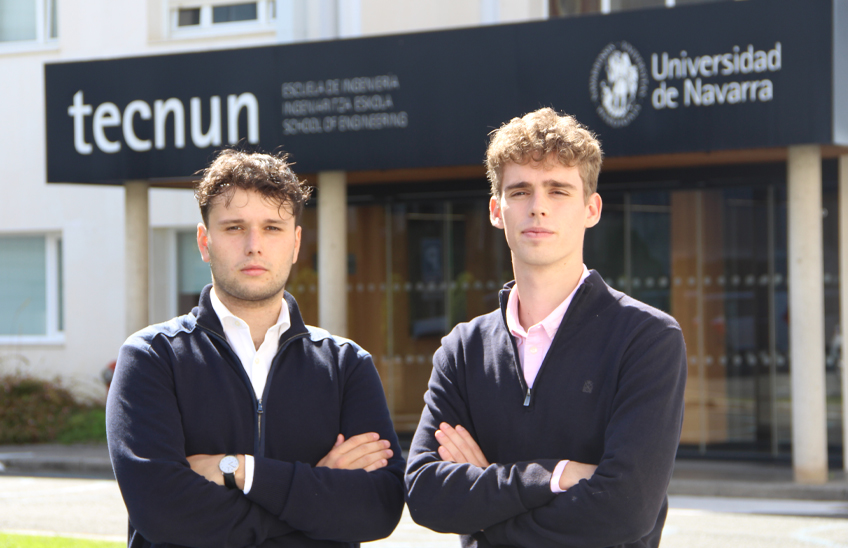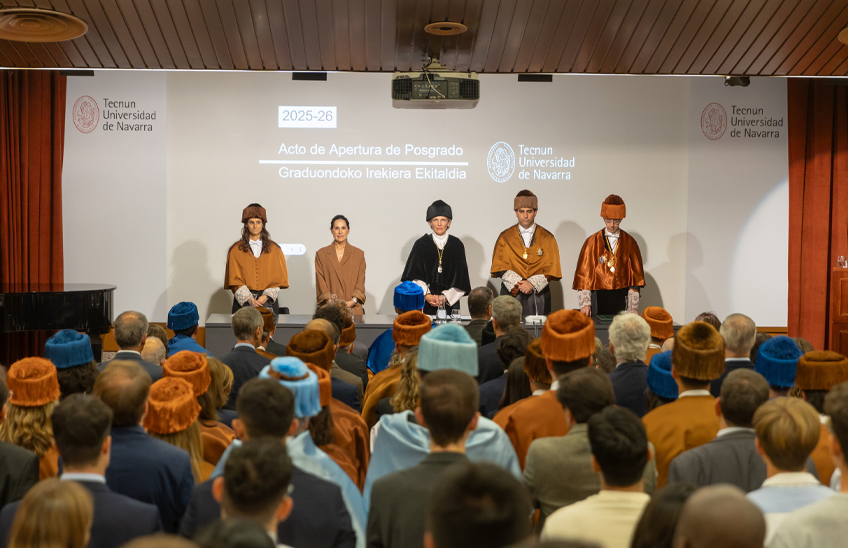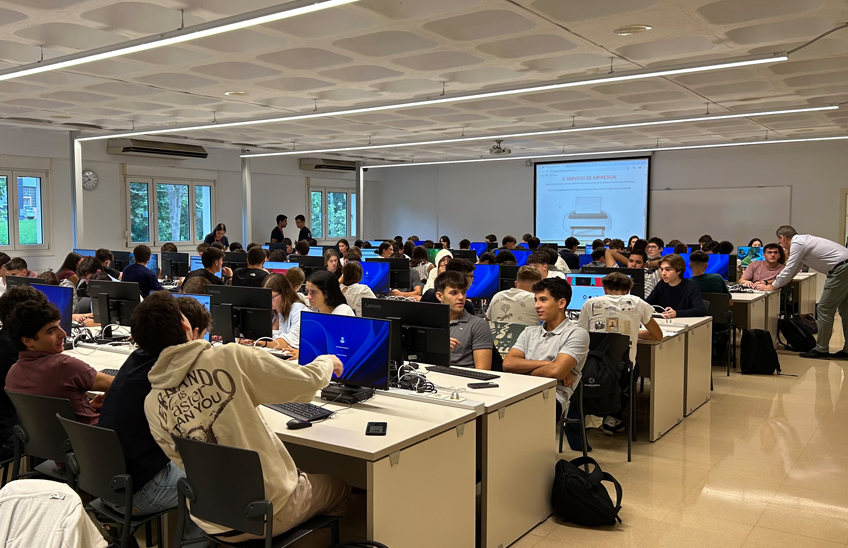Antonio de Martí, Tecnun doctor, awarded by the Real Sociedad Española de Físicas for the best thesis

PhotoCedited/Antoniode Martí Olius
03 | 11 | 2025
On July 30, Antonio de Martí Olius, PhD from the School of Engineering-Tecnun, was the winner of the II Edition of the award of the Specialized group of Information and Quantum Technologies (GEITC) of the Royal Spanish Society of Physics (RSEF) for the best doctoral thesis in Quantum Information and Technology, entitled "Decoding Algorithms for Quantum Error Correction Codes for Quantum Error Correction Codes".Decoding Algorithms for Quantum Error Correction Codes."
The court highlighted in its work the quality and impact of his contributions to the development of error-correcting code decoding methods.
For de Martí, this award has been a "great honor" and he would like it to serve, among many other things, "to highlight that the University of Navarra is developing quality research in the field.
Born in Barcelona, he has lived most of his life in Catalonia and holds a graduate in Physics from the University of Barcelona, where he chose the accredited specialization in theoretical physics. He then moved to England to study the Master of Science in Physics at King's College London. Later, he started a research internship at the University of the Basque Country, which led him to do his doctorate at Tecnun.
He currently works as a quantum error correctionresearcher at Xanadu, a Toronto-based Canadian business focused on quantum technology. He is also listed as one of the world's leading suppliers of photonic quantum hardware.
The doctor explains that a quantum computer is being built at Xanadu using measurement-based quantum computing technology. "I've been there for a little over a year now and I'm very happy, learning from a diverse and very competent team" he assures.
Antonio de Martí, his doctorate and the award as seen by his thesis supervisors
Tecnun researchers Pedro Crespo and Josu Etxezarreta were Antonio's directors and both recognize the great prestige that the RSEF award represents. "The recognition accredits the quality, novelty and potential scientific impact of the doctoral thesis , giving it visibility both nationally and internationally," says Crespo, who is also Full Professor and manager of the Quantum Information Lab group .
He considers that such an award will have a very relevant impact on Antonio's research and professional career. "It not only endorses the quality and excellence of his work, but also reinforces his visibility in the academic community, facilitating international collaborations, access to competitive projects or possible incorporation into centers of recognized prestige," he explains.
D. in Quantum Information Theory, Josu Etxezarreta, explains that, in addition to recognizing Antonio's work in a field of "great relevance" within quantum technologies, such as quantum error correction, he also values the work carried out in the Quantum Information laboratory at Tecnun. He also emphasizes the quality and relevance of the research carried out in the group in which the doctorate researchers Javier Oliva del Moral, Olatz Sanz Larrarte, Arun John Moncy and Borja Aizpurua Altuna (in partnership with Multiverse Computing) are currently working on their doctoral thesis with the financial aid of the group members Etxezarreta, Crespo and Reza Dastbasteh and other external collaborators.
For his part, Crespo highlights Antonio's work on the development of new coding algorithms that "would make possible in the future the reliable, error-free use of quantum computing".
Along the same lines, Etxezarreta explains that the central theme of the work is the design and improvement of "decoding algorithms for quantum error correction, which are a critical element in making these machines work well".
The doctor maintains that the complexity of designing these algorithms is "tremendous", as they must be "extremely accurate and have a fast speed. "Without these features, it is not possible to build a fault-tolerant quantum computer that is also capable of executing any quantum algorithm," he says.
In the last written request, Etxezarreta highlights in Antonio's work the fact that he has successfully worked "on topics that represent the state of the art of the field".
"To have proposed one of the first algorithms to decode quantum leave density check codes (qLDPC) and to have inspired other relevant researchers in the field, such as some from IBM or Google, to extend his results is very commendable," says the Tecnun researcher and PhD.
Antonio de Martí in his defense of the thesis




